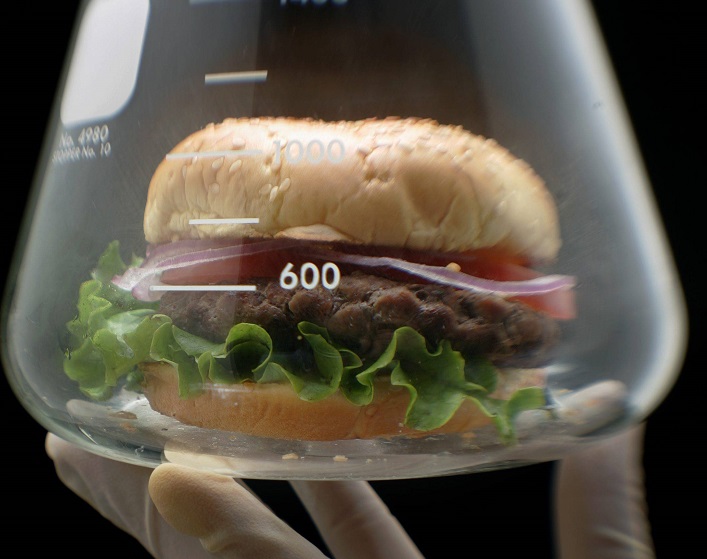What if you could eat a burger without killing a cow? Lab grown, or cell-cultured meat may be the answer.

“It’s meat produced by taking cells from an animal, and then you grow them in big fermentation vats,” says Jim House, a food sciences professor at the University of Manitoba.
“And then once the cells have grown up and multiplied, you pull them back together and form a meat product, such as a chicken nugget or a chicken cutlet.”
House says these products could potentially be made more efficiently and sustainably than through traditional farming. They may also be appealing to those who choose not to eat meat — since they do use animal products, but don’t require killing the animal.
“I think we’re looking at providing alternatives,” says House. “And it may be a new way of creating new or novel products that we position to the marketplace.”
House adds cell-cultured meat is a long way off from being available in stores. Only two companies in the United States have been approved to sell it, and none in Canada. And because the products are still novelties, the true measure of their efficiency isn’t yet known. It’s also still quite cost-prohibitive.

Get breaking National news
“If we really want to see this commercialized to the extent that it’s going to be meaningful, you need an awful lot of investment in fermentation vats, in the materials that help the cells grow.”
- Hurricane Helene claims lives of Georgia mother and her one-month-old twins
- Tropical Storm Milton forms in Gulf of Mexico, could intensify as a hurricane threatening Florida
- Northern lights set to shine in parts of Canada this weekend. Here’s where
- Imperial Oil to pay hefty fine for 2021 oil spill that sickened residents
Livestock producers don’t believe cell-cultured foods will compete with their products. Manitoba Beef Producers say in a statement to Global News: “With a growing global population, the need to produce more protein from all sources also increases…When lab grown product join the protein supply chain in the future, they will offer another option to consumers.”
Chicken Farmers of Canada say in a statement: “Even the next five years might be short for real impact due to regulatory approval process and consumer acceptance. The environmental impact of cell-cultivated chicken is still unknown and can make cell-cultivated meat not acceptable to consumers, especially for chicken which has the lowest carbon footprint of all livestock.”
Still, House believes the technology has the potential to be used in many ways. Since lab-grown meat requires less water than farming, it could increase food security in places where water is scarce. It could even have more futuristic uses.
“You actually have the ability to create meat products for long space voyages or if you’re colonizing Mars,” says House. “So, this is the promise and the excitement of this type of research.”













Comments